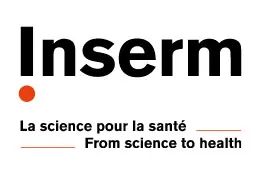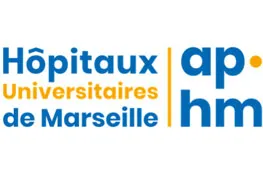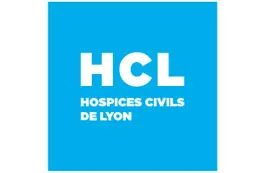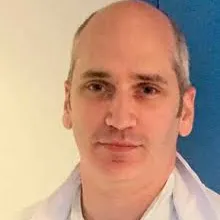Living Brain for Targeted Epilepsy Surgery
Improving Epilepsy Surgery Management and Prognosis using Virtual Brain Technology.
What is Epilepsy?
Epilepsy is not just one condition, but rather a group of chronic neurological disorders sharing a common feature: repeated epileptic seizures. Approximately 50 million people worldwide have epilepsy, making it a common neurological diseases. In France, it represents around one percent of the population. While incidence is higher in children and elderly people, people of all ages, races and social classes can be diagnosed with epilepsy.
Epilepsy
Epilepsy is one of the world’s oldest recognized conditions, with written records from 4000 BC. Not only seizures, but associated cognitive problems (such as memory and concentration) and emotional or psychological problems (such as depression and anxiety) may occur. These issues impact family life, schooling and employment, and contribute to a poorer quality of life for many individuals. Fear, misunderstanding, discrimination and social stigma still surround epilepsy for some people, further impacting quality of life.
Epileptic seizures are due to excessive, abnormal electrical activity in brain cortex. How they manifest clinically depends on where in the brain the disturbance first starts and to which areas it spreads. This might include loss of awareness or consciousness, movement disturbances, hallucinations, mood disorders… Seizures may be more or less disabling.
In some patients, seizures can be triggered by situations such as:
- lack of sleep
- stress
- illness or fever
- missing anti-epileptic drug medication
- caffeine, alcohol or drug intake
- bright flashing lights or patterns…
Epilepsy is not contagious. Often unknown, its cause can be the consequence of:
- brain damage from perinatal injuries (e.g., loss of oxygen during birth)
- congenital brain malformations
- genetic conditions
- stroke
- brain infections (meningitis, encephalitis…)
- brain tumors…
Diagnosis of epilepsy is typically made based on description of the seizures accompanied by an electroencephalogram (EEG) to look for abnormal patterns of brain waves.
Neuroimaging studies (CT scan or MRI) are often performed to look at the structure of the brain. Video and EEG monitoring may be useful in difficult cases to directly record and observe seizures.
Good to know...
Up to 70 percent of epileptic patients can be successfully treated with anti-epileptic drugs (i.e., their seizures completely controlled). For patients who do not respond adequately to drug treatment, neurosurgery can be beneficial in some. For any candidate for epilepsy surgery, the critical factor in deciding upon treatment strategy is the correct estimation of surgical outcome. This depends on many factors, including cause of epilepsy, brain region involved and duration of epilepsy.
While doctors can estimate the likelihood of successful surgery, no reliable procedure currently exists to combine the various prognostic factors for a given patient. This leads to great uncertainty in predicting the effects of surgery on an individual scale. This is the challenge that the EPINOV project addresses.
Large scale brain modeling
Human brain function is thought to emerge from the interaction of neural networks at different spatial scales, under different temporal constraints.
In the 2000s, network simulations were focusing mainly on the microscopic and mesoscopic levels. In 2005, a new field of research, called connectomics, appeared which provides comprehensive maps of the macroscopic wiring between all cortical and subcortical structures.
Large-scale brain modeling aims at investigating the link between structural and functional connectivity and gaining a better understanding of underlying network dynamics.

The virtual brain
At the end of the 2000s, there was a clear need from the neuroscience community to develop an efficient and flexible approach addressing the macroscopic level of brain organization for simulating, reproducing and probing the broad repertoire of brain activities and dynamics.
This gave rise to the birth of The Virtual Brain (TVB), a neuroinformatics environment for the virtualization of brain structure and function. TVB merges structural information on individual brains in 3D and simulates brain network activity enabling quick data analysis and visualization of results.
The Virtual Brain therefore serves as a powerful research tool that has the potential to utilize big data and to develop and test advanced theories of brain dynamics. TVB is integral part of the Human Brain Project.
This approach naturally extends into clinical applications, deriving parameters that both relate to biophysics and clinical outcome, thereby addressing current limitations in treating and predicting outcome in neurological disorders such as epilepsy.
EPINOV Partnership
The EPINOV project is one of 10 large-scale projects selected in the 3rd wave of the French scientific excellence call entitled « Recherche Hospitalo-Universitaire en santé » (RHU) operated by the National Research Agency (ANR). This work is supported by a public grant from the second “Investissements d’Avenir” program (reference: ANR-17-RHUS-0004).
The Partners
The EPINOV project relies on a public-private partnership coordinated by an academic Institution, Aix-Marseille University (AMU) and composed of an industrial partner, Dassault Systèmes, two public health establishments, the Assistance-Publique Hôpitaux de Marseille (AP-HM) and the Hospices Civils de Lyon (HCL) and a public research institution, the French Institute of Health and Medical Research (Inserm).
In addition to the 5 main partners, EPINOV’s multi-centric clinical trial will bring together the main French health centers experts in epilepsy management and surgery located in Marseille, Lyon, Lille, Strasbourg, Paris, Grenoble, Bordeaux, Toulouse, Nancy and Rennes.
Expertise
This multi-disciplinary consortium combines a unique set of experts with strong know-how in the fields of epilepsy care and surgery, neuroimaging and signal analysis to neuro-informatics and software development, as well as clinical trial management and statistics. The EPINOV project is coordinated by Pr. Fabrice Bartolomei, neurologist, hospital practitioner and university professor at AMU, leading the clinical neurophysiology service at the hospital La Timone.
Infrastructure
The research done in the context of the EPINOV project largely relies on access to key state-of-the-art technology, including: a high-performance computing cluster dedicated to neural modelling; The Virtual Brain software; a MEG platform; 3T and 7T MRI systems (the only 7T MRI system installed within a hospital in France); an epileptic patient unit expert in stereotactic EEG (sEEG) recordings at the hospital La Timone; and the HCL, ECRIN-certified data management center.
The Consortium's Goals
The EPINOV project aims to guide surgical strategies to improve epilepsy surgical prognosis using a novel approach of large–scale computerized brain modeling and simulation based on data of individual epileptic patients. Retrospective pilot studies have confirmed the feasibility of this approach and shown promising results in predictability of surgical results. This approach will be achieved by:
- conducting a multicenter trial involving major French epilepsy surgery centers trained to use state-of-the-art medical neuroinformatic technology; and
- developing a Virtual Brain-based simulation approach.
Epilepsy Modeling
Phenomenologically, epilepsy is defined by the onset and offset of high-frequency neural discharges. In order to model and better describe these discharges, a novel mathematical model was developed that is able to predict details of epileptic seizure discharge properties. This model describes fast spiking, spike wave events, the dynamics of seizure onset, time course and offset and also postulates of the existence of a yet to be identified slow variable. A theoretical mathematical analysis of epileptic discharges allows researchers to classify and predict seizure types, highlighting the relevance of conducting theoretical work to better understand brain function and dysfunction.
With the aim of generating large-scale personalized brain network models of epileptic patients, the EPINOV partners have merged the TVB connectome-based approach with the mathematical model and data fitting strategies to give rise to the Virtual Epileptic Patient (VEP). VEP simulations, data fitting and mathematical analysis pipeline result in the prediction of the most likely seizure propagation patterns through the patient’s brain and allow the exploration of personalized brain intervention strategies. Personalized data obtained in a clinical trial setting will help improve the accuracy of localization of the epileptogenic network, thus guide optimal surgical strategy and consequently would lead to a better surgery outcome. The EPINOV project will then be able to evaluate the impact of the VEP technology on surgical strategies and surgical morbidity at the individual patient level.
Kick-Off
The EPINOV kick-off took place on January, 8-9th, gathering the EPINOV partners and ANR. Here are the principal investigators, work package leaders and academic leaders.
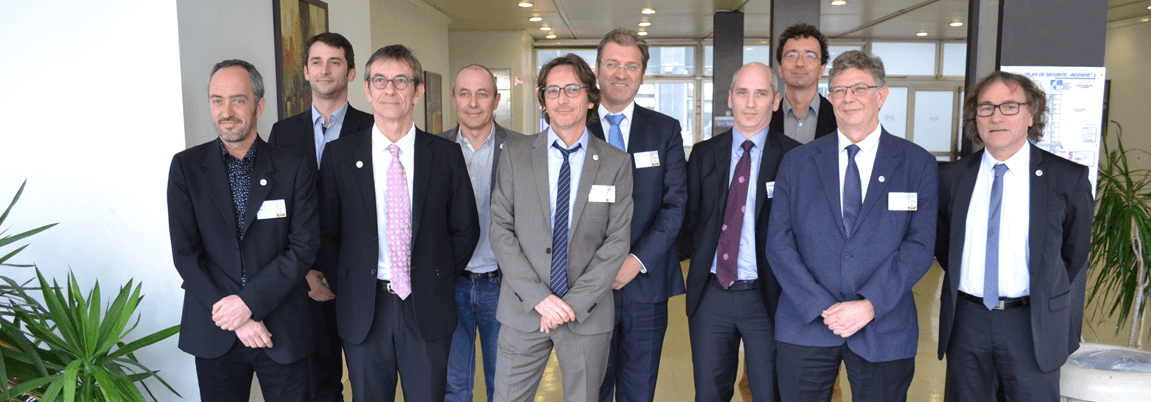
EPINOV announces launch of first clinical trial for brain surgery assisted by virtual brain technology
The EPINOV consortium (Improving EPilepsy surgery management and progNOsis using Virtual brain technology) announced on July 1, 2019 the launch of the first clinical trial for epilepsy surgery utilizing virtual brain technology.
The trial study will be conducted in 13 hospital centers in France.
The study will last four years and aims at guiding therapeutic strategies to improve surgical prognosis.
It will include about 400 patients (adults and children over 12) who have been diagnosed with drug-resistant epilepsy and identified as potential candidates for resective epilepsy surgery.
This EPINOV Trial is the largest randomized trial ever conducted in epilepsy surgery.
We are pleased to announce that the first patient suffering from drug-resistant epilepsy has been included in the clinical trial. Personalized modeling of epileptic networks is an innovative approach that proposes to improve the surgical prognosis of epilepsy in an individualized way.
The pilot studies that we carried out did confirm that this approach is feasible. Every patient will be modeled as a ‘virtual epileptic patient’ and the EPINOV Trial will enable us to assess the effectiveness of the virtual brain modeling, with a view to obtaining a more precise pre-surgical diagnosis.
Media Coverage
Access the ANR selection press release here as well as all the other media coverage of the project.

